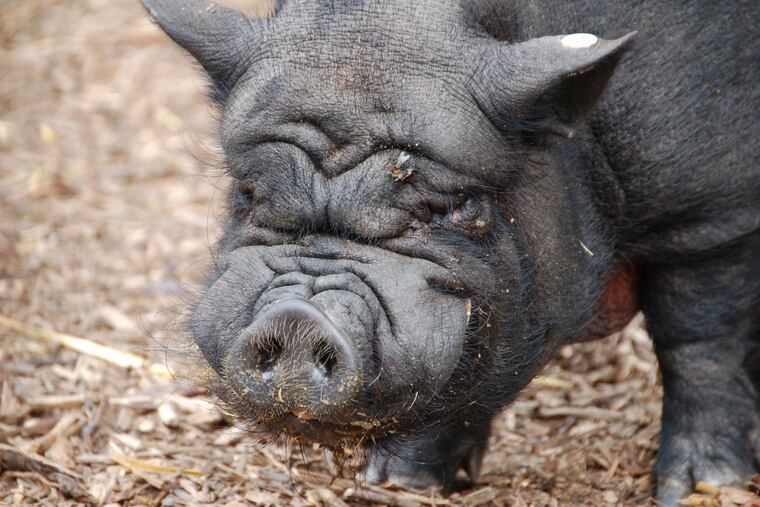
If you’re a Delawarean, please, bring home your bacon.
And, no, this isn’t hogwash.
Since 2016, the state has experienced a significant rise in potbellied pigs running wild in rural and residential areas, the Delaware Department of Agriculture squealed on Thursday. With that rise, the animals have become a nuisance to landowners, and are running the risk of establishing a feral pig population and spreading diseases such as salmonella, among other issues.
In other words, it’s mayham out there.
Officials said the porcine problem can be traced back to people who purchase the pigs as pets. Often, people who sell the animals use terms like micro pigs and pocket pigs to make a sale. But as the pigs age, they can grow to 70 to 200 pounds, and have a lifespan of 15 to 20 years — a commitment for which many owners aren’t ready.
As a result, many pigs become strays. Some owners who can’t boar the brunt of pig parenting “relinquish ownership and allow them to roam.”
Yes, sow-iously.
The at-large pigs often go on to cause problems for land, livestock, and humans — and, as a result, officials said that “swift action will be taken to mitigate any threats.” And they’re not oinking around.
For example, if pigs are found on state-owned land such as state forests or state parks, they will be “dispatched immediately.” Primarily, that’s because potbellied pigs can reproduce as young as eight weeks of age, which could allow a feral pig population to quickly crop up.
Potbellied pigs otherwise found at large, meanwhile, will be assumed to be stray. If the pig has an identification, such as an ear tag, it will be returned to its owner. If not, here’s a good recipe for pulled pork.
(In seriousness, officials said they would “determine the disposition” of untagged errant pigs.)
Officials said that owners can help by following Bob Barker’s sage advice: Have your pets spayed or neutered. Owners should also construct secure pens for their pigs so that the animals can’t run off.
Potbellied pig owners who need guidance, meanwhile, can call the department’s Poultry and Animal Health Section at 302-698-4561. Just don’t hog the line all to yourself.